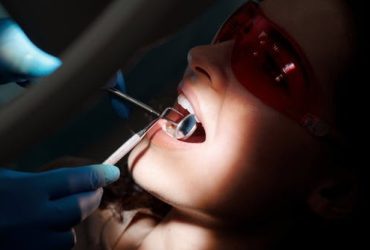Why Is It Essential to Have Regular Teeth Cleanings?
Oral hygiene is a crucial part of our overall health. Yet, despite this widely accepted fact, many overlook the significance of regular teeth cleanings. It’s not just about having a sparkling smile. It’s an essential preventive measure for various dental issues that, if neglected, could have overarching health implications.
The Importance of Oral Health
Oral Health and Overall Health
Oral health is a reflection of your overall systemic health. Inadequate oral health can often be a precursor or an indicator of other serious health issues. Diseases like diabetes and heart disease have been linked to oral health issues like gum disease. To learn more about the importance of oral health, you can click on this link.
Self-Esteem and Confidence
A bright, clean smile has more to offer than just aesthetic appeal. It can bolster your self-esteem, making you feel more confident in everyday interactions. Regular teeth cleanings play an integral role in maintaining that captivating smile.
The Role of Professional Teeth Cleaning in Maintaining Oral Health
Plaque and Tartar Removal
Regular brushing and flossing, while important, may not thoroughly clean your teeth. Plaque buildup and tartar, which diligent home care can miss, need professional cleaning. Practices similar to the Massanutten Dental Team and Oral Surgery can provide these essential services.
Early Detection of Dental Issues
The benefits of regular professional cleaning extend beyond just a neat set of teeth. Dentists and dental hygienists can also spot potential issues during these sessions. Detecting infections, cavities, or illnesses early significantly improves treatment outcomes.
Prevention of Gum Disease
Gum disease is a prevalent issue among adults and teens alike. A primary cause is plaque accumulation in areas difficult to reach through daily brushing or flossing. Regular cleanings can prevent this buildup, shielding you from gum diseases and the pain they bring along.
What happens during a Teeth Cleaning Session?
Examination
- Initial Assessment: The dentist or dental hygienist starts by understanding your dental history and thoroughly examining your oral cavity.
- X-Rays: Depending on your need, you might also get dental X-rays taken to assess the state of your teeth more precisely.
Scaling and Polishing
- Process of Scaling: During scaling, a dental professional will use handheld tools or ultrasonic instruments to remove plaque and tartar from your teeth surfaces carefully. Particular focus is given to the gum line and areas between teeth, where buildup commonly occurs.
- Benefits of Scaling: Scaling is a significant part of oral health maintenance. It helps prevent periodontal diseases, reduces inflammation of the gums, and can even eliminate bad breath caused by bacteria buildup in the mouth.
- Process of Polishing: After scaling, teeth are polished to remove stains and smooth the teeth surfaces. Dental professionals usually use handheld tools like an electric toothbrush and a special dental paste.
- Benefits of Polishing: Polishing leaves your teeth feeling slick and clean, discouraging plaque from adhering to the teeth immediately after cleaning. Additionally, it can remove superficial stains, giving your teeth a whiter appearance.
- Aftercare: You may experience sensitivity or minor discomfort following a scaling and polishing session. Utilizing a toothpaste design for sensitive teeth and avoiding hot or cold beverages for a day or two can reduce these effects. Also, maintaining a proper oral care routine at home can make your next scaling and polishing session quicker and more comfortable.
Advice and Recommendations
Post-cleaning, your dentist will provide advice and recommendations based on their assessment. This could include tips for maintaining oral hygiene, diet suggestions, or even scheduling dental procedures. Similar to what you would experience during dental exams in Harrisonburg.
Key Takeaways for Understanding Your Oral Health
- Practice Good Oral Hygiene Regularly: Good oral health starts at home with tooth brushing and flossing. These basics can help prevent common problems like cavities and gum disease.
- Regular Dental Check-Ups: Scheduling regular check-ups with your dentist can help detect potential oral health issues before they become severe. Early detection often results in better treatment outcomes and can save you time and money in the long run.
- Understand the Link Between Oral Health and Overall Health: Your mouth is a window into the health of your body. Oral health can offer clues about your overall health and can affect or be affected by various diseases and conditions, including heart disease, diabetes, and osteoporosis.
- Know the Symptoms of Oral Health Issues: Understand the signs and symptoms of oral health problems. Persistent bad breath, irritated gums, mouth sores, and frequent dry mouth could signify that you need to see your dentist.
- Adopt a Healthy Diet and Lifestyle: Limit sugar intake, quit smoking, and curb alcohol consumption, as they can lead to tooth decay and oral cancer. Maintaining a balanced diet is key to keeping your teeth and gums healthy.
- Wear Mouth Protection During Physical Activities: If you engage in recreational activities that might pose a risk to your teeth, wearing a mouthguard or full-face helmet can prevent injuries to your teeth and mouth.
Average Cost of Invisalign
- Teeth cleanings aren’t the only services offered by your dentist. They also offer solutions for straighter teeth, like Invisalign.
- Understanding the cost of Invisalign will be beneficial to better prepare your pocket before starting this treatment.
Conclusion
Regular teeth cleanings are a must to maintain optimal oral health. Not only does it offer a cleaner, brighter smile, but also a healthier you. Along with correct brushing and flossing techniques, regular dental check-ups and cleanings will go a long way in preserving your oral health and overall well-being.





